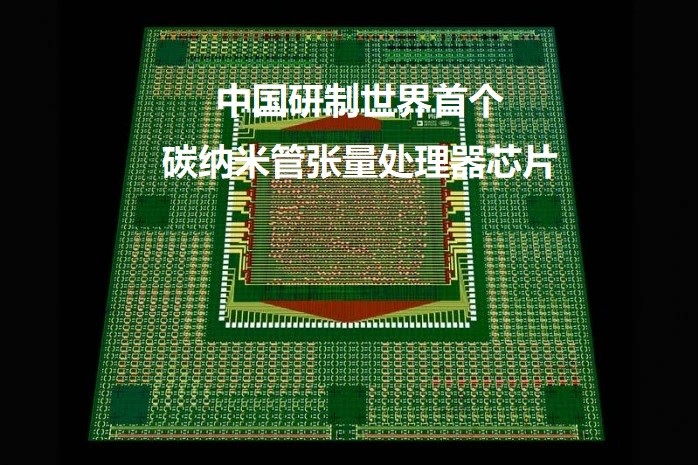In the fierce competition in the global semiconductor industry, Chinese scientists have made major breakthroughs in the field of next-generation chip technology. The Peng Lianmao-Zhang Zhiyong team at the Center for Carbon-Based Electronics at Peking University's School of Electronics has successfully developed the world's first carbon nanotube-based tensor processor chip (TPU), which not only demonstrates China's innovation capabilities in the high-tech field, but also provides a possible solution to the demand for high-performance and energy-efficient chips in the era of artificial intelligence.
Technological innovation: the performance advantages of carbon nanotube tensor processors
The chip consists of 3,000 carbon nanotube field-effect transistors and uses a novel device process and pulsating array architecture to efficiently perform convolution operations and matrix multiplication. Experimental results show that the five-layer convolutional neural network based on the TPU achieves up to 88% accuracy of MNIST image recognition with a power consumption of only 295μW. This performance is achieved thanks to the research team's optimized carbon nanotube manufacturing process, which obtains semiconductor materials with a purity of up to 99.9999% and ultra-clean surfaces, resulting in transistors with high current density and uniformity.

Figure: China develops the world's first carbon nanotube tensor processor chip
Process optimization: Achieve high purity and high performance
Through continuous technological innovation, the research team has achieved high purity and high performance of carbon nanotubes. Simulation results show that 8-bit carbon nanotube TPUs using the 180nm process node are expected to reach a frequency of 850 MHz and an energy efficiency level of 1 trillion operations per watt. This achievement not only marks a significant progress in carbon nanotube technology in the field of chips, but also heralds a new stage of carbon-based electronics from device research to system demonstration.
Strategic significance: to meet the demand for chips in the era of artificial intelligence
Globally, with the rapid development of artificial intelligence technology, there is a growing demand for high-performance, energy-efficient chips. This breakthrough in the School of Electronics of Peking University not only improves the computing efficiency of convolutional neural networks, but also realizes parallel computing with extremely low power consumption, which is expected to meet the strict requirements of chips in the era of artificial intelligence. In addition, carbon-based transistors exhibit a combination of superior speed and power consumption over silicon-based CMOS transistors, and carbon-based tensor processors have a three-fold performance advantage at the 180nm technology node, with the potential to carry over to advanced technology nodes.
Research Collaboration: Cross-institutional collaborative innovation
Notably, this outcome is a model of cross-agency collaboration. Assistant researcher Si Jia from the Center for Carbon-based Electronics at the School of Electronics of Peking University is the first author of the paper, Academician Peng Lianmao and Professor Zhang Zhiyong are the corresponding authors, and Zhang Panpan, a distinguished researcher at Beijing University of Posts and Telecommunications, is the co-first author. This cooperation model reflects the importance of collaborative innovation in the field of scientific research and is also a key factor in promoting scientific and technological progress.
Conclusion and prospects: Broad prospects of carbon nanotube technology
To sum up, the breakthrough of Chinese scientists in the field of carbon nanotube tensor processor chips not only demonstrates China's innovative strength in the field of semiconductor technology, but also provides new impetus for the development of the global semiconductor industry. With the continuous advancement of technology and the growth of market demand, carbon nanotube technology is expected to play a more important role in chip manufacturing in the future, promoting the development of the entire industry in the direction of higher performance and higher energy efficiency.






